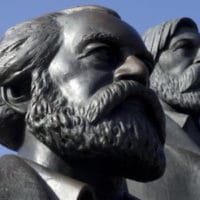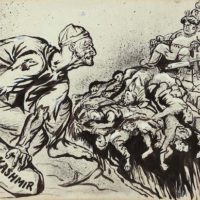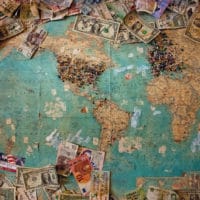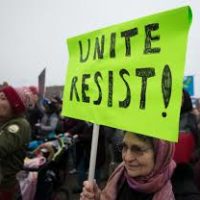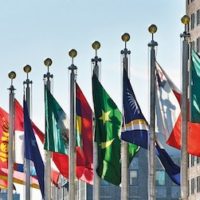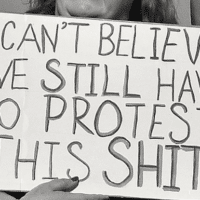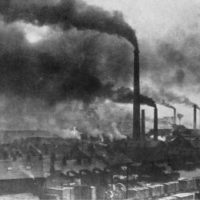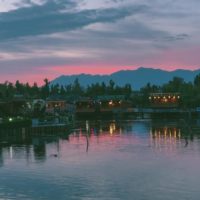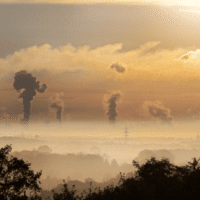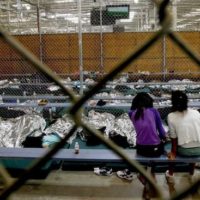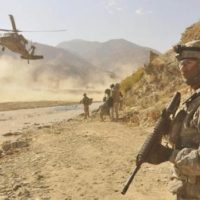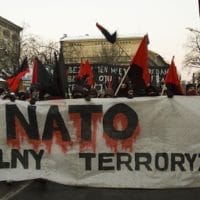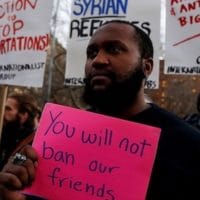-
The IMF’s latest victims
In 2013, the International Monetary Fund produced a report acknowledging that it had “underestimated” the effects that austerity would have on Greece’s economy. Yet the Fund has made the same mistakes in its subsequent deals with Argentina and Ecuador.
-
Review: Marx/Engels – Gesamtausgabe
Was Marx an ecologist and does Marx’s theory offer a coherent theoretical and practical approach for ecologists in the 21st century? The publication of Marx’s excerpts and notes on ecology from the mid-1860s may help to answer that question.
-
The Trump administration dismantles endangered species protections as sixth mass extinction crisis looms
Today, the Trump administration released a final rule dismantling the role of science in informing protections for endangered and threatened wildlife. The Endangered Species Act (ESA) and the protections it has afforded to threatened and endangered species have been based on the best available science and commercial data.
-
Trump starves Venezuela, Democrats are silent
The Trump administration is intensifying its economic warfare on the people of Venezuela with a crippling embargo—and facing no resistance from the Democratic Party.
-
History often proceeds by jumps and zig-zags
The main conflict here – since the 1940s – has been between India and Pakistan. Disagreements are deeply rooted in the political culture of each country. The rise of the far right in India has only inflamed the conflict further.
-
The Modern Money Movement with Andrés Bernal
We are joined by Andrés Bernal, policy advisor to Alexandria Ocasio-Cortez and doctoral student at the New School for Public Engagement, Division of Policy Management and Environment. We speak with Bernal about his history with political organizing and the critical role he has come to play in the Modern Money movement, including the struggle for […]
-
Ian Angus on the politics of ecosocialism
Ecosocialism — in particular the Marxist wing of the ecosocialist movement — builds and acts on that understanding.
-
Out of the gloom
It may be summer in the northern hemisphere but politics is more gloomy and the lack of light demoralising.
-
What the New Deal can teach us about winning a Green New Deal: Part II—Movement building
The multifaceted crisis we face today is significantly different from the crisis activists faced in the first years of the Great Depression. But there is no question that, much like then, we will need to build a powerful, mass-movement for change if we hope to harness state power to advance a Green New Deal.
-
Hegel on labor and freedom
Alexandre Kojève’s reading of Hegel is especially clear on Hegel’s conception of labor and freedom. This is provided in Kojève’s analysis of the Master-Slave section of Hegel’s Phenomenology in his Introduction to the Reading of Hegel.
-
Why Marx matters: capitalism and the Metabolic Rift
CO2 was identified as a prime driver of global warming in the 1950s and has been the subject of many international meetings over the past 30 years. Despite increasing calls to reduce carbon emissions, they continue to rise faster and faster.
-
Tulsi Gabbard vs Google goliath
Tulsi Gabbard was the most-searched person on Google during the first debate–so the giant corporation shut down her account.
-
Warnings ancient and modern
Before the Berlin Wall was torn down we all made sarcastic jokes about its official designation by East German (GDR) party leaders as “anti-fascist protective barrier”. But hearing racist ranting by AfD leaders now hoping for victories and seeing gangs of marching thugs with barely–paraphrased Nazi slogans we must wonder if perhaps that scorned terminology also contained just a bit of truth.
-
Imagining a free Palestine should be commonplace—that’s why I wrote the novel ‘Siegebreakers’
The siege of Gaza is crushing the people who live under it, and it is crushing all of our imaginations.
-
Why Kashmir is suddenly a potential global point of conflict
Before India’s Home Minister Amit Shah introduced the Jammu and Kashmir Reorganization Bill in the Indian Parliament, his government sent tens of thousands of Indian troops into Kashmir. There is no official number, but it is often said that there are nearly 600,000 Indian troops in the state. That a population of 12 million people needs this kind of armed action suggests that they are an occupied people.
-
Crisis, which crisis? climate change and capitalism
The essays compiled in this special issue of Key Words address the theme of crisis. But which crisis?
-
Detention camps are concentration camps
In June it was finally settled, the short-term detention centers run by the U.S. Border Patrol were—quite technically—concentration camps. While they are not the extermination camps of the Holocaust, the rounding up and mass incarceration of people who haven’t seen a judge fits the definition exactly, according to expert Andrea Pitzer. The legal definition of concentration camps are “places of forced relocation of civilians into detention on the basis of group identity.”
-
Don’t believe the hype about the ‘rules-based order’, capitalism is perpetual war
Why is war, or the threat of it, a permanent feature of our society? The most common answers point to contingencies–the psychology of particular world leaders, for example, or the specific gains to a company to be made from a conflict. Alternatively, they rely on universal claims that religion causes eternal strife or that conflict is part of our human nature.
-
NATO’s China Double-Think by Finian Cunningham + Neoliberalism Has Met Its Match in China by Ellen Brown
We cannot win a currency war by competitive currency devaluations that trigger a “race to the bottom,” and we cannot win a trade war by competitive trade barriers that simply cut us off from the benefits of cooperative trade. More favorable to our interests and values than warring with our trading partners would be to cooperate in sharing solutions, including banking and credit solutions.
-
Trump’s disavowal of white supremacy makes a mockery of antiracism—but so does the rest of the political establishment
The partisan condemnation of white supremacy that has taken shape during the Trump era has reduced anti-racist critique to political theater.


